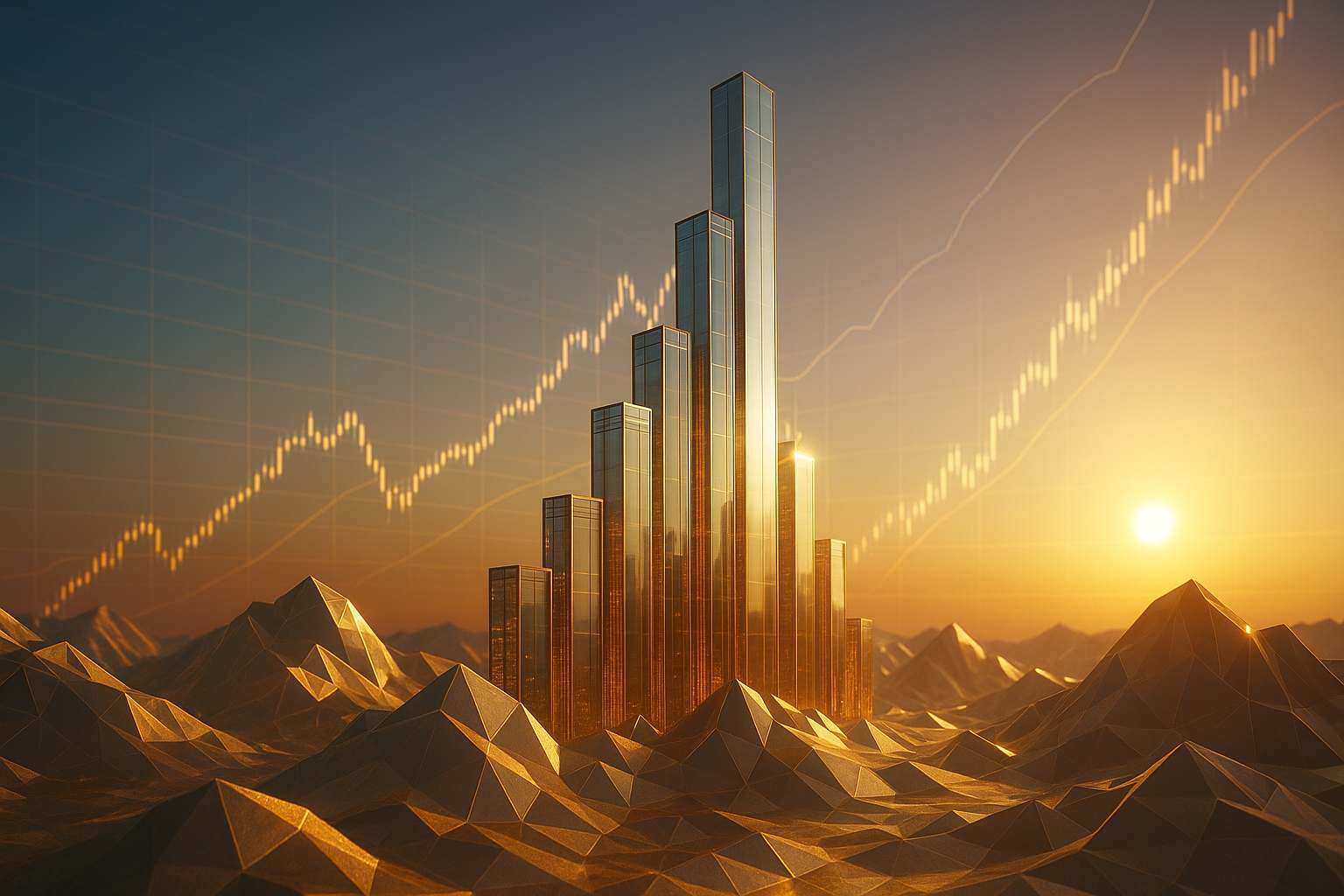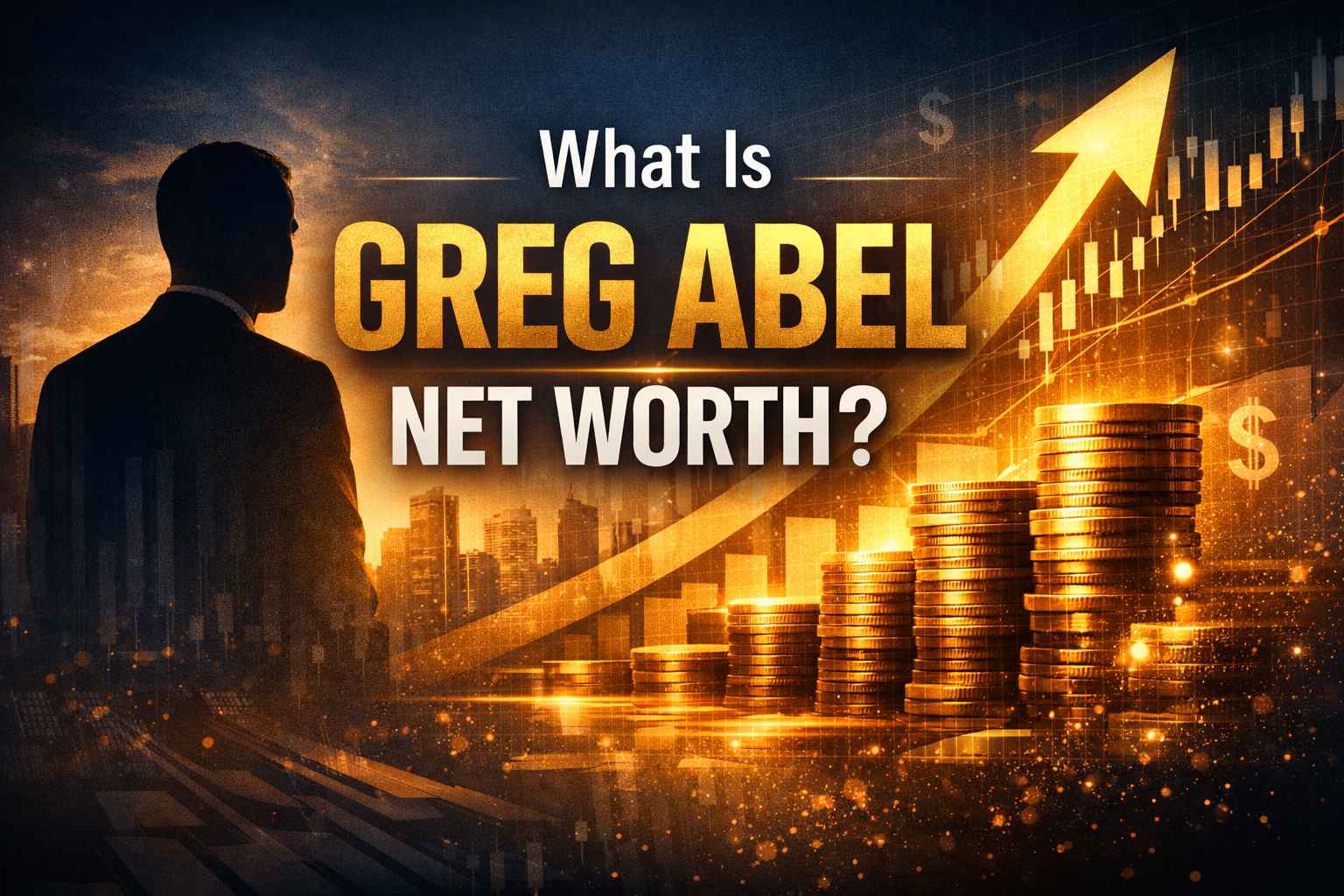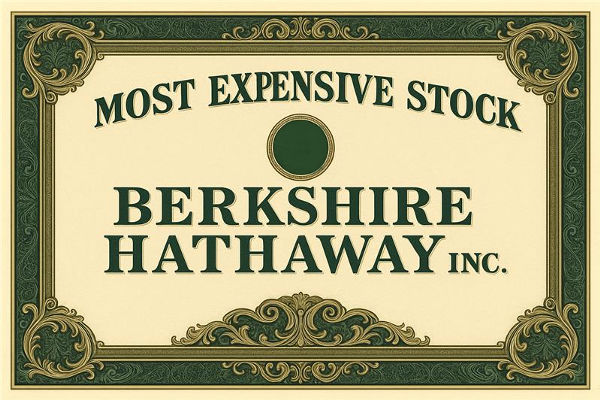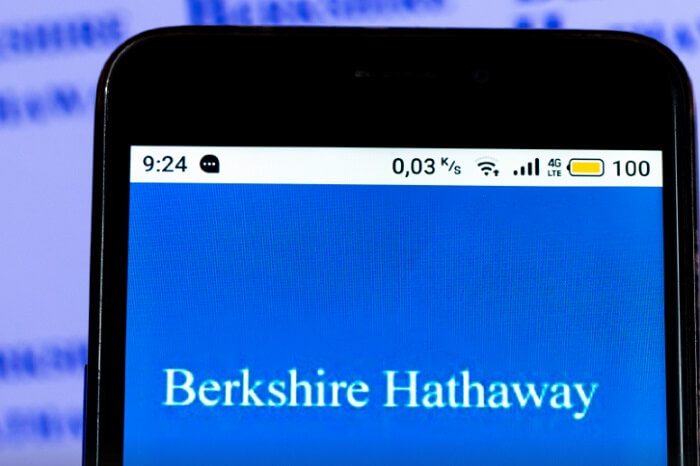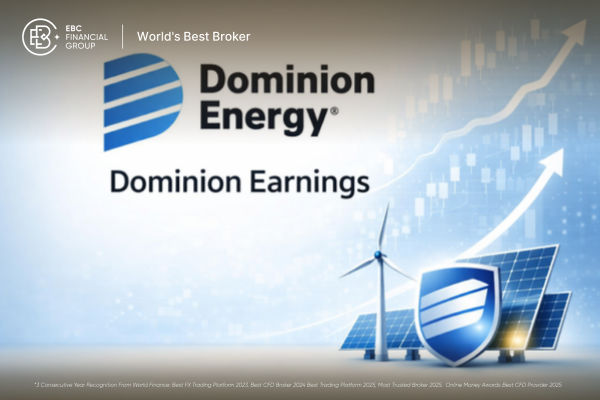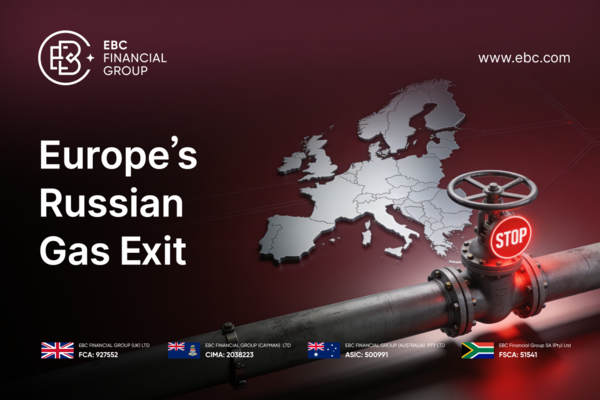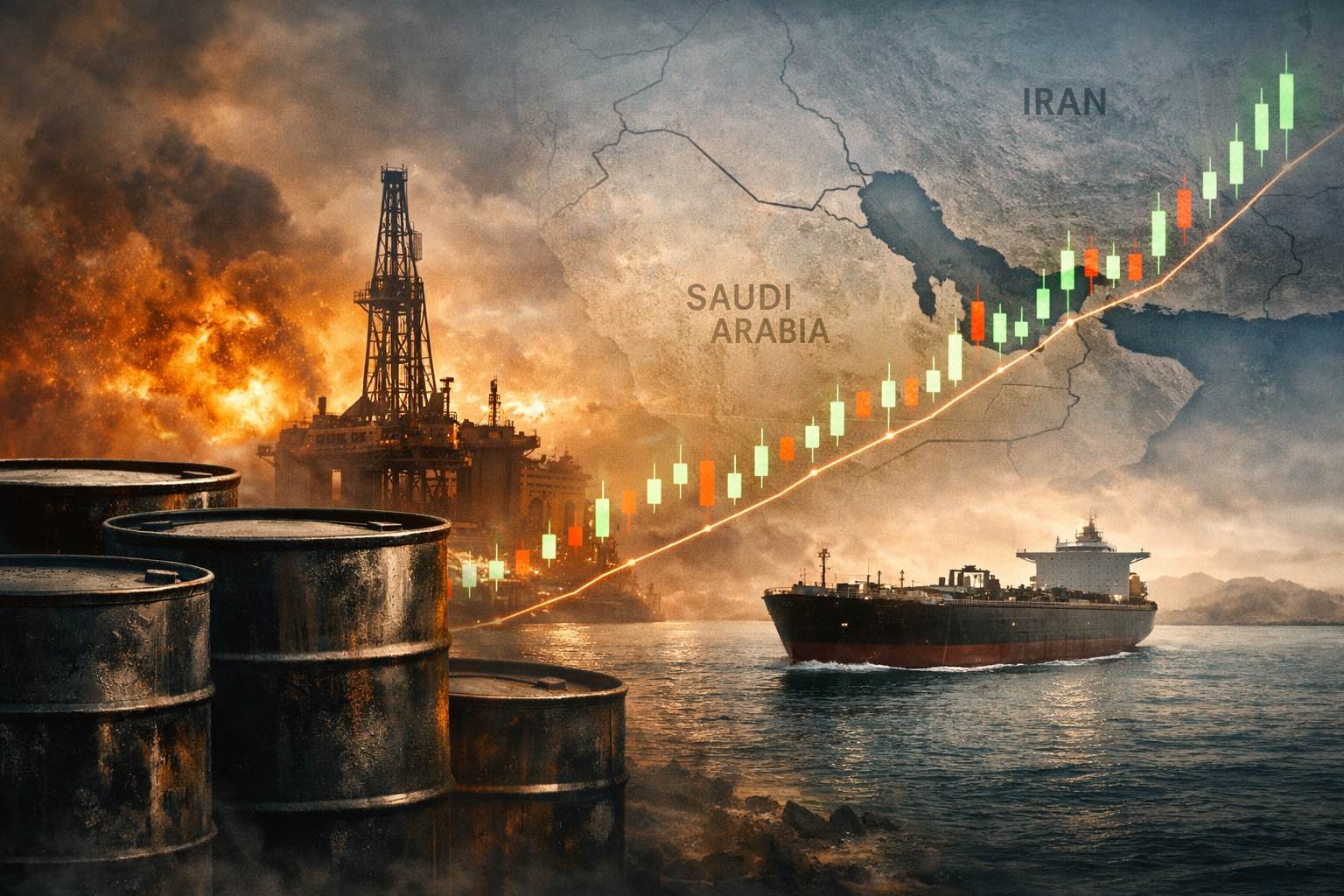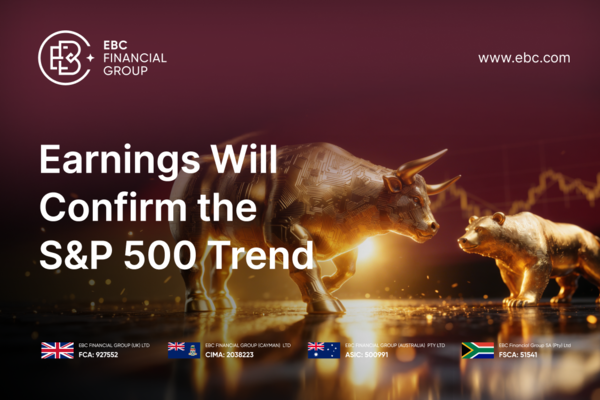A single share of the Most Expensive Stock in the world costs more than many people will earn in a decade. Berkshire Hathaway Class A trades above 756,000 dollars per share, putting it in a league of its own.
It is not alone. A Swiss chocolate maker, Lindt & Sprüngli, sees its registered shares changing hands near 120,000 Swiss francs each, while several other companies trade at well over 1,000 dollars a share.
These prices look extreme, but they are not an accident. They reflect rare business models, tight share supply, decades of profit growth and management teams that choose not to split their stock.
Understanding why these shares are so expensive helps you see what really drives long term value in the equity market, and which companies now sit at the very top of the global price ladder.
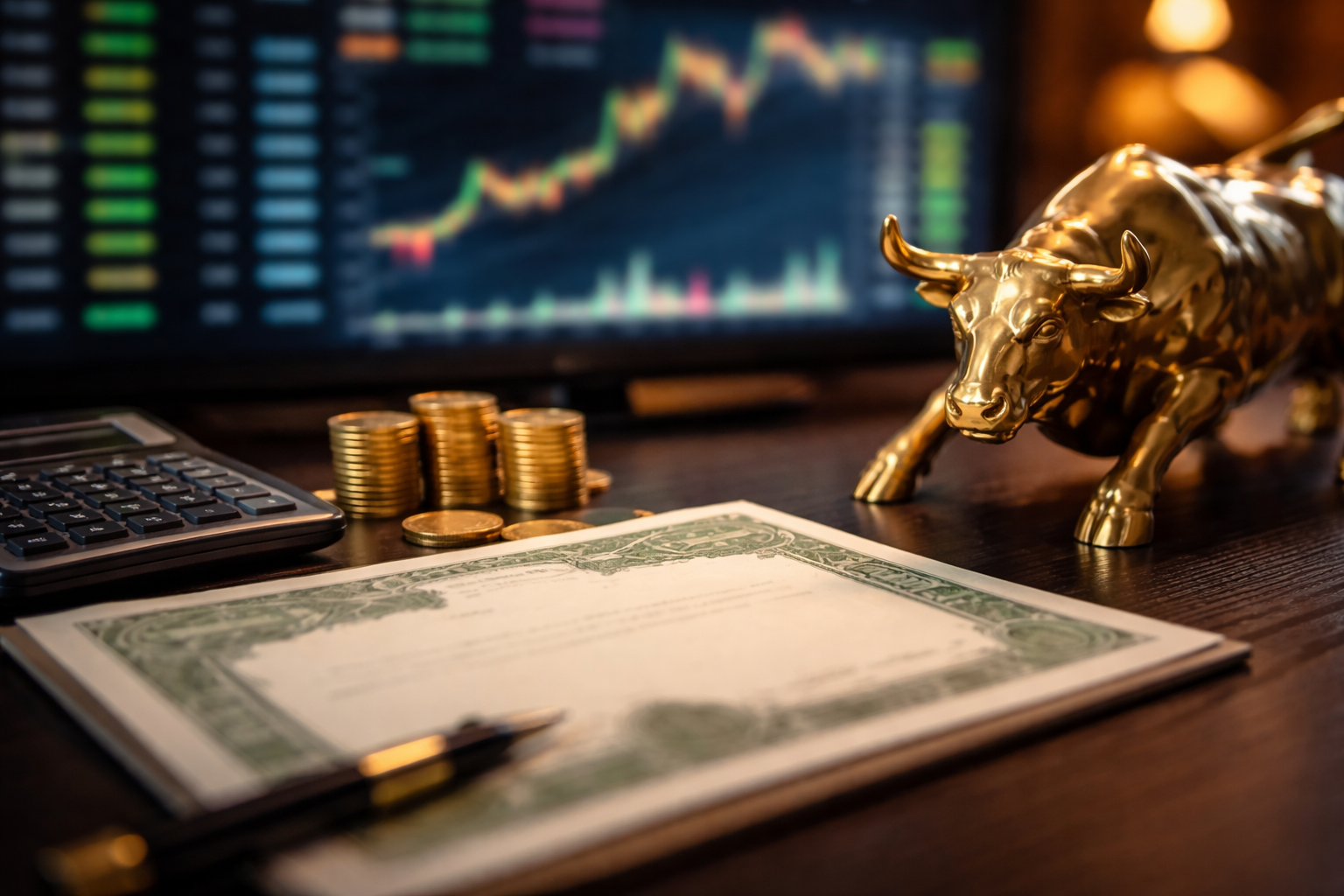
What Does “Most Expensive Stock” Mean
When people search for the Most Expensive Stock, they usually mean the highest price per share, not the largest company by market value. That is an important difference.
1) Price per share - How much you pay for one share on the exchange.
2) Market capitalization - Total value of all shares (price per share × number of shares).
Some tech giants like Apple, Microsoft, and Nvidia are among the most valuable companies in the world by market cap, but their share prices look modest because they have split their stock several times.
Many of the stocks on this list have never done a major split, or they split very rarely. Over decades, strong earnings and rising investor demand pushed the price of a single share to extreme levels.
Top 10 most expensive stocks in the world in 2026
Based on public data from global exchanges and major financial databases, these are 10 of the highest priced stocks in the world in late 2026.
| Rank |
Company |
Ticker |
Industry |
Country / Region |
Primary Exchange |
Recent Price |
| 1 |
Berkshire Hathaway Inc Class A |
BRK.A |
Conglomerate holding company |
United States |
NYSE |
$756,943 |
| 2 |
Lindt & Sprüngli AG (registered share) |
LISN |
Premium chocolate, food producers |
Switzerland |
SIX Swiss Exchange |
CHF 120,000 (≈ $154,550) |
| 3 |
NVR Inc |
NVR |
Homebuilding, mortgage banking |
United States |
NYSE |
$8,044.79 |
| 4 |
Seaboard Corporation |
SEB |
Agribusiness, food, shipping |
United States |
NYSE American |
$5,469.43 |
| 5 |
Booking Holdings Inc |
BKNG |
Online travel services |
United States |
Nasdaq |
$4,443.42 |
| 6 |
Givaudan SA |
GIVN |
Flavours, fragrances |
Switzerland |
SIX Swiss Exchange |
CHF 3,083 (≈ $3,970) |
| 7 |
AutoZone Inc |
AZO |
Automotive parts retail |
United States |
NYSE |
$3,605.03 |
| 8 |
Hermès International SCA |
RMS |
Luxury goods |
France |
Euronext Paris |
€2,049 (≈ $2,417) |
| 9 |
White Mountains Insurance Group Ltd |
WTM |
Insurance, reinsurance, investments |
United States / Bermuda |
NYSE |
$2,126.57 |
| 10 |
First Citizens BancShares Inc |
FCNCA |
Commercial banking |
United States |
Nasdaq |
$2,122.95 |
*Rounded and approximate, for illustration only.
To understand why these names dominate any Most Expensive Stock list, it helps to look at their history and share structure.
Why Are These Stocks So Expensive?
1. Berkshire Hathaway Class A (BRK.A)
Berkshire Hathaway is the investment conglomerate built by Warren Buffett. It owns insurance businesses, BNSF Railway, energy utilities, and dozens of industrial and consumer companies.
BRK.A is widely recognised as the most expensive stock in the world by price per share.
The share has traded above 800,000 dollars at its record high in 2025 and sits around the mid 750,000s in February 2026.
Buffett has refused to split the Class A shares. That policy keeps the share count low and lets the price reflect decades of compounded growth. Instead of splitting, Berkshire created cheaper Class B shares for smaller investors.
Stock market information
Berkshire Hathaway Inc. is an equity in the USA market.
The price is 756943.0 USD currently with a change of -2355.0 USD (-0.31%) from the previous close.
The latest open price was 756300.0 USD and the intraday volume is 275.
The intraday high is 757000.0 USD and the intraday low is 750000.0 USD.
The latest trade time is Friday, February 06, 08:15:00 +0800.
2. Lindt & Sprüngli AG (LISN)
Lindt & Sprüngli is a Swiss chocolate icon. It sells premium chocolate under brands such as Lindt and Ghirardelli and operates factories in Europe and North America.
Its registered shares trade around 120,000 Swiss francs each on SIX Swiss Exchange, making Lindt one of the priciest consumer stocks globally.
Why it is expensive:
Long history of steady brand driven growth
High margins in premium chocolate
Very small number of registered shares outstanding
Limited stock split activity
All of this keeps each share rare and costly.
3. NVR Inc (NVR)
NVR is a US homebuilder and mortgage provider operating under brands like Ryan Homes and NVHomes. It focuses on the US East Coast and runs a capital light model by buying lots only when needed.
NVR trades above 8,000 dollars per share.
Reasons for its high price:
Management has avoided frequent stock splits
Strong free cash flow and disciplined land strategy
Regular share buybacks, which reduce the share count
4. Seaboard Corporation (SEB)
Seaboard is a diversified group that runs pork production, grain processing, commodity trading, and marine shipping.
Its shares trade above 5,000 dollars each on the NYSE American market.
Drivers of its high price:
Concentrated family and insider ownership
Relatively low public float
Niche mix of agribusiness and logistics assets that attract long term investors
5. Booking Holdings Inc (BKNG)
Booking Holdings is the group behind Booking.com, Priceline, and other travel platforms. It earns commissions on hotel stays, flights, and car rentals booked online.
The stock trades in the mid 4,000 dollar range per share.
Why it is among the most expensive stocks in the world:
Asset light, high margin online business model
Global leadership in online travel
Limited stock split history and strong long term earnings growth
6. Givaudan SA (GIVN)
Givaudan is a Swiss multinational manufacturer of flavours and fragrances supplied to global consumer brands across food, beverage, and personal care.
Its shares trade around 3,083 Swiss francs each on SIX Swiss Exchange, placing it among the priciest Swiss blue chips by share price.
Why it is expensive:
Global leadership in flavours and fragrances
Stable end markets and resilient cash generation
Relatively low share count and limited stock split activity
Premium valuation supported by long term pricing power
7. AutoZone Inc (AZO)
AutoZone is a leading US retailer of aftermarket car parts and accessories. It benefits from an aging vehicle fleet and a strong do it yourself culture among car owners.
The stock trades close to 3,600 dollars per share.
Why its share price is so high:
Aggressive and steady share buyback program over many years
Consistent profit growth and high returns on capital
No recent large stock splits, so price per share climbed as the share count fell
8. Hermès International SCA (RMS)
Hermès is a French luxury house known for leather goods, fashion, and accessories, with a business model built on scarcity, craftsmanship, and pricing discipline.
Its shares trade around 2,049 euros each on Euronext Paris, making it one of the highest priced large cap stocks in Europe by share price.
Why it is expensive:
Exceptional pricing power and brand equity
Tight control of supply that supports scarcity value
High margins and consistent cash generation
Limited stock split history relative to long term growth
9. White Mountains Insurance Group (WTM)
White Mountains is an insurance and financial services holding company, active in property and casualty insurance and reinsurance.
The stock trades around 2,100 dollars per share on the NYSE.
Reasons for its elevated price:
Focus on specialist insurance platforms
Conservative capital management
No push to keep the share price “low” through regular splits
10. First Citizens BancShares Inc (FCNCA)
First Citizens is a US regional bank that gained global attention after it acquired most of Silicon Valley Bank’s assets in 2023. That deal sharply lifted its earnings power and stock price.
Today, FCNCA trades in the low 2,100 dollar range per share.
Key factors:
Large transformational acquisition that boosted profits
Limited share count relative to its new earnings base
History of modest split activity, letting the price per share rise
Should You Invest in The Most Expensive Stocks
A high share price on its own does not make a company a better investment. A 10 dollar stock can be expensive if its profits are weak, while a 1,000 dollar stock can be fairly valued if its earnings and cash flow justify it.
For traders and investors, the key questions are:
How fast are revenues and earnings growing?
Are profit margins stable or improving?
How strong is the balance sheet and cash generation?
Does management allocate capital in a disciplined way?
In many markets, platforms now offer fractional ownership, so a high nominal price is less of a barrier than in the past. What matters more is valuation, risk, and fit with your strategy.
Key Lessons From The World’s Most Expensive Stocks
The Most Expensive Stock by price is Berkshire Hathaway Class A, not the largest tech company by market cap.
Many of these companies have avoided regular stock splits, which lets price per share climb over time.
Several have limited share counts and strong insider or family ownership, which supports scarcity.
They operate in profitable niches: insurance, niche banking, homebuilding, auto parts, premium chocolate, and regional e-commerce.
High share prices do not mean low risk. Business cycles, regulation, credit risk, or commodity prices can still hurt these companies.
The focus should stay on fundamentals, risk management, and position sizing rather than chasing the biggest price tag on the ticker screen.
Frequently Asked Questions (FAQ)
1. What is the most expensive stock in the world right now?
Berkshire Hathaway Inc Class A (BRK.A) is widely recognised as the most expensive stock in the world by price per share. It trades around the mid 750,000 dollar range as of early 2026.
2. Are the most expensive stocks also the most valuable companies?
Not always. The most valuable companies by market capitalization include names like Apple, Microsoft, Nvidia and others, many of which have much lower share prices because they have done several stock splits.
3. Why do some companies avoid stock splits?
Some companies avoid stock splits to attract long-term investors, reduce short-term speculation, and signal that management prioritizes fundamentals over cosmetic share-price changes. Berkshire Hathaway is a classic example of this approach.
4. Does a higher share price mean a better stock?
No. Share price alone tells you nothing about valuation. Investors should look at earnings, cash flow, balance sheet strength, growth outlook, and the price paid relative to those fundamentals. A 100 dollar stock can be cheaper than a 10 dollar stock if its profits are far higher.
5. Can small investors gain exposure to these stocks?
Yes. Even if a single share costs thousands of dollars, investors can still participate by using platforms that offer fractional shares where regulations allow or by investing through equity funds or ETFs that include these companies. It’s important to review costs, risks, and your own risk tolerance before investing.
Conclusion
The Most Expensive Stock in the world is not a tech giant but a diversified holding company that has quietly compounded value for decades. Around it sits a small club of firms whose shares trade in the thousands or even hundreds of thousands of units of their local currency.
What they share is not just high prices. They combine strong business models, disciplined capital allocation, and share structures that keep the number of shares low.
For traders and investors, the real edge comes from understanding these drivers, not from chasing a headline figure on the screen.
We see high priced stocks as case studies in long term compounding, but not as automatic buys. The best opportunities still come from careful analysis, clear risk management, and a focus on value rather than just the size of the price tag.
Disclaimer: This material is for general information only and does not constitute financial, investment or trading advice. Any trading decision should be based on your own judgement and risk tolerance.
